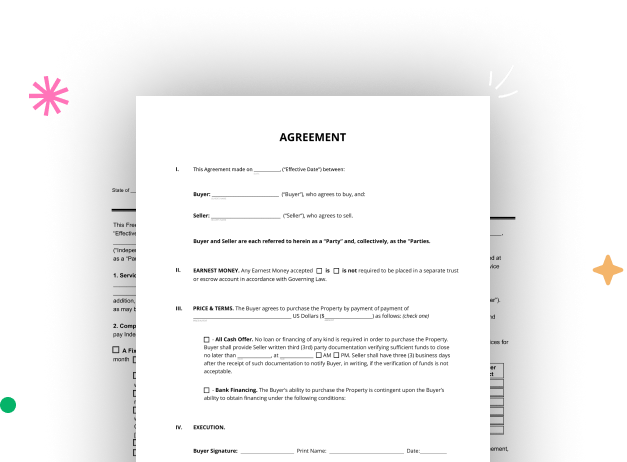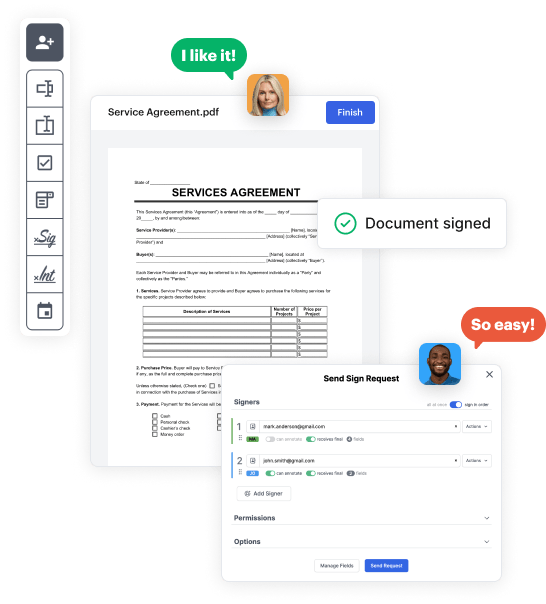

First, sign in to your DocHub account. If you don't have one, you can simply sign up for free.
Once signed in, navigate to your dashboard. This is your central hub for all document-related tasks.
In your dashboard, hit New Document in the upper left corner. Select Create Blank Document to build the Start-up Legal Document from the ground up.
Add various items like text boxes, photos, signature fields, and other interactive areas to your form and assign these fields to intended users as necessary.
Personalize your document by inserting walkthroughs or any other necessary information leveraging the text tool.
Meticulously go over your created Start-up Legal Document for any mistakes or required adjustments. Take advantage of DocHub's editing tools to polish your template.
After completing, save your file. You may choose to save it within DocHub, transfer it to various storage options, or send it via a link or email.